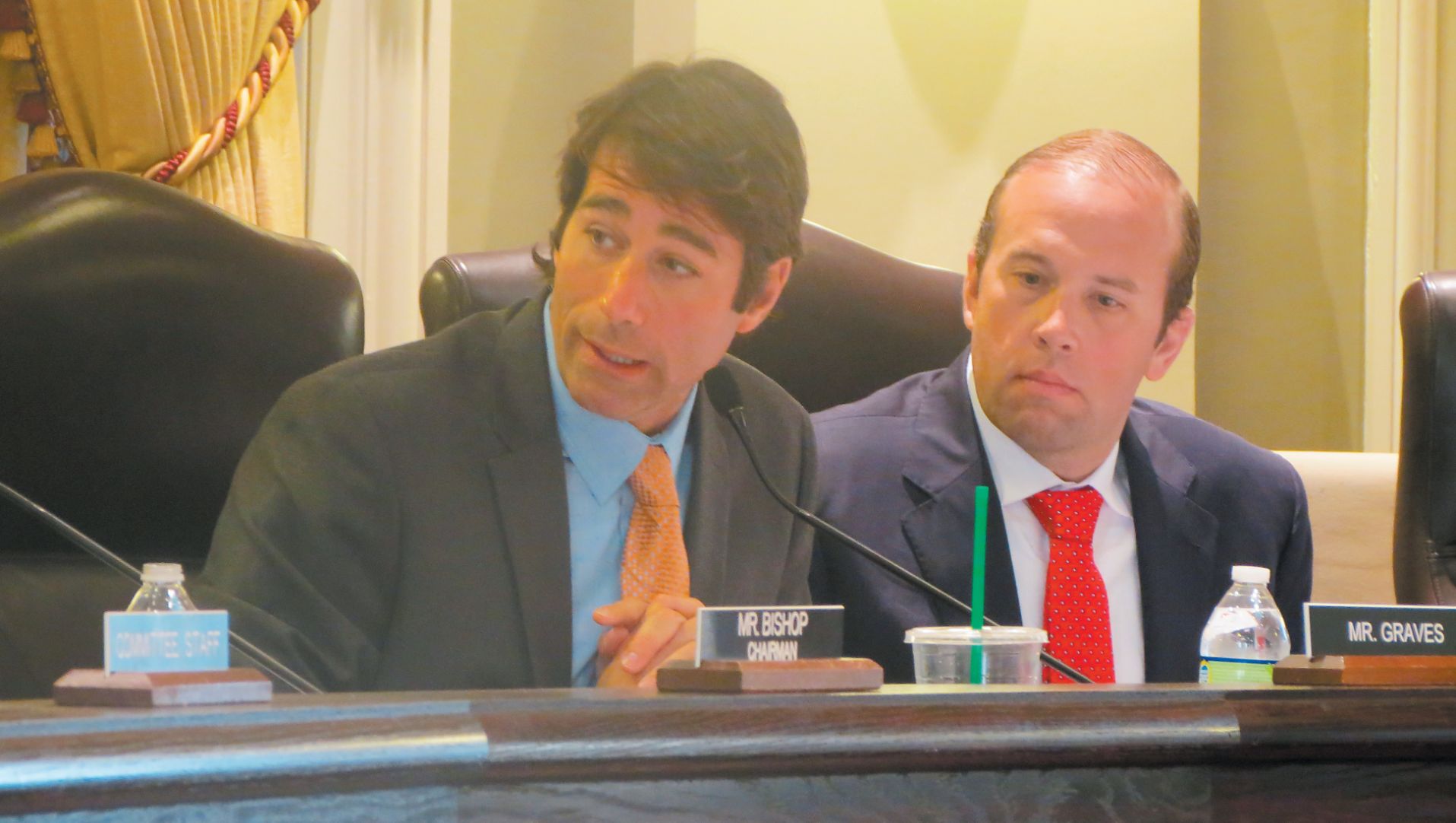
UPDATED: Injured football player ‘responding’, but still in critical condition
September 30, 2015
Alfreda Richoux
October 6, 2015A local small business leader testified before a Congressional committee about incoming regulations on the oil industry.
Lori Davis, president of RIG-CHEM, carried that message to the House Committee on Natural Resources in the Louisiana Supreme Courtroom earlier this month. She joined a panel of four others to talk with congressmen about federal regulations impacting oil production in the Gulf of Mexico.
The hearing, featuring the majority staff of the committee, was comprised of all Republicans. The congressmen at the hearing espoused a pro-oil platform, calling for less stringent regulations.
Before the panel spoke with the committee, Louisiana’s two senators offered statements to the hearing. Sen. David Vitter read the names of the 11 lives lost at the Deepwater Horizon explosion, noting their deaths were the biggest tragedy of this incident. He went on to say that these new regulations would present “significant new burdens on the economy with no environmental or safety impact.”
Sen. Bill Cassidy followed Vitter, calling federal regulations counterproductive, as oil revenues the state receives directly fund wetland restoration projects. Cassidy cited an industry report estimating new blowout preventer regulations would cost the oil industry over $32 billion over 10 years.
Afterward, Davis’s panel took center-stage. Davis was joined by a federal regulator, the head of an oil and gas firm, an environmentalist and an LSU professor.
Davis aimed to represent small businesses in the oil industry at the hearing. She spoke of her own small business, started by her father in 1980. Davis noted that her company currently employs 16 people with full benefits, and has never had to lay off a worker.
However, Davis also fretted about the current oil market and its effects on small businesses like hers. According to Davis, sharply declining oil prices are threatening to push companies like hers out of the market. She was glad to be able to represent small businesses and what these new regulations could mean for companies like hers.
“We are a big part of what happens in the industry and many times we are forgotten, because in fact we are small companies. We’re not the Schlumbergers and Halliburtons of the world with all the huge resources. It’s good to be included today,” Davis said after the hearing.
A main point of contention was the discrepancy between figures stated by the committee and the figures stated by panelist Lars Herbst, regional director of the Bureau of Safety and Environmental Enforcement. Herbst presented the new regulations as a means to improve safety in Gulf drilling while keeping up production. Herbst estimated that the incoming regulations would cost the oil industry $880 million over 10 years, considerably less than the $32 billion listed in the industry report Cassidy used.
Herbst said he included the effects of increased safety in his significantly lower estimation. He also said the updated blowout preventer requirements would reduce the number of spills over the next decade, resulting in lower cleanup costs.
The congressmen present and those representing the oil industry on the panel proposed a different plan for regulation. They stated a need for more performance-based means that the industry would induce themselves, instead of prescriptive rules from a regulatory body like BSEE.
Davis said that any of these prescriptive measures weakening the overall oil industry would affect her directly.
“It’ll limit the amount of opportunity. And small business has a harder time competing. When there’s not as much work out there, certainly the bigger service companies want to capitalize on that. They can withstand, they can weather the storms, a lot longer than we can,” Davis said.
Davis said RIG-CHEM has planned ahead enough that there will be no layoffs before the end of the year. The future, murky with new regulations and OPEC’s price-deflating tactics, is not as certain.
“We’ve secured ourselves in a financial position that we know that we can hold on and weather through without having to lay anybody off or make any kind of adjustments in what we’ve already done. We’re tightening our belts. We’re doing that now, and we’ve been doing that for the last several months. It’s hard to know what the future’s going to hold,” she said.










